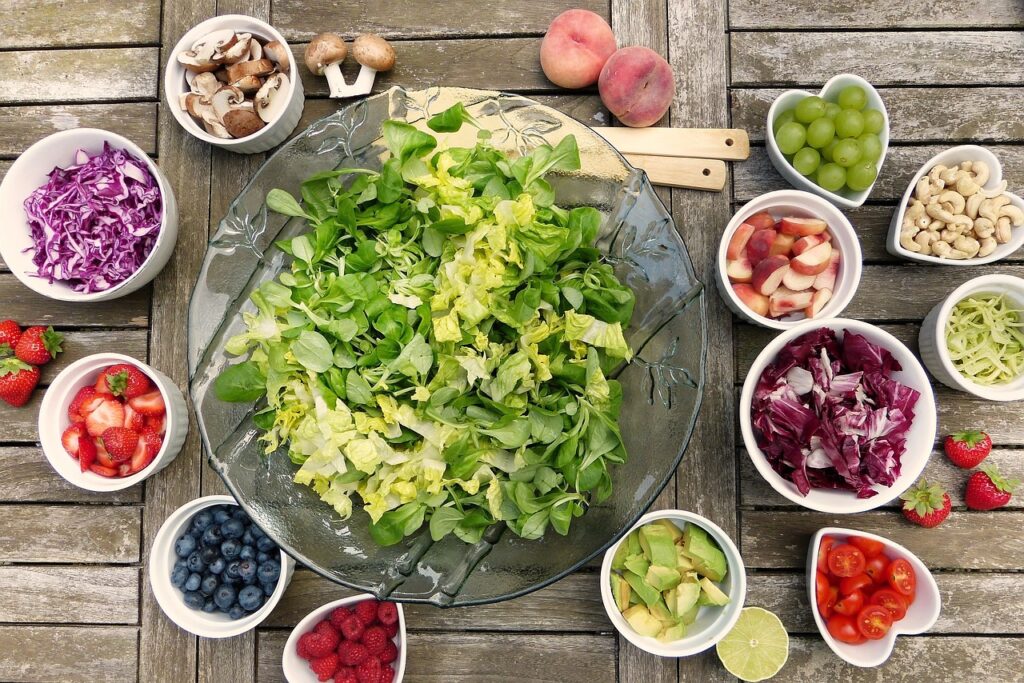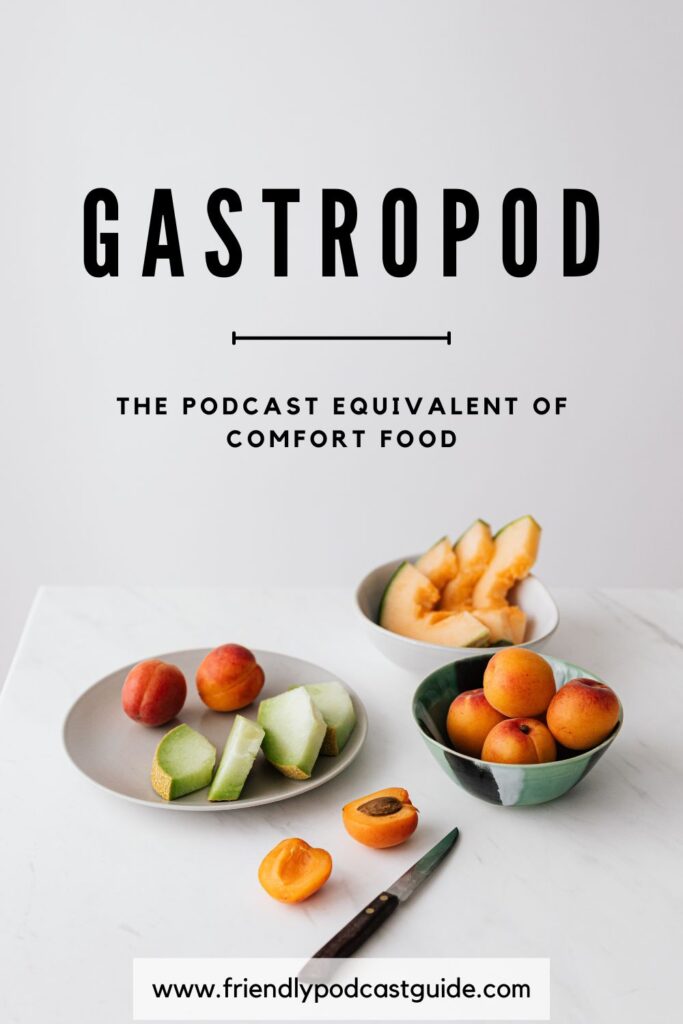Between Scott, my partner, and I, Scott is definitely more of a foodie. When I found Gastropod, I realized that while my palate isn’t as refined as Scott’s, I love to learn about the history and science behind food. This podcast feels like the podcast equivalent of eating comfort food. You’re learning food science and history in a fun and engaging way!

The hosts of Gastropod described the show like this. Food with a side of science and history. Every other week, co-hosts Cynthia Graber and Nicola Twilley serve up a brand new episode exploring the hidden history and surprising science behind a different food or farming related topic. From aquaculture to ancient feasts, cutlery to chili peppers, and from microbes to Malbec. They interview experts, visit labs, fields, and archaeological digs. They have lots of fun while discovering new ways to think about and understand the world through food. Each episode is around 45 minutes long.
Kid Podcast Guide
Have you heard of kid podcasts? They’re one of my favorite parenting tools. I use them all the time as a mom, and you can too. You can use them when you’re running errands with the kiddos to keep them from complaining the whole time, or when you need a mom break, you can grab an easy activity like coloring pages or magna tiles, turn on a kid podcast, and your kids will be entertained for at least half an hour.
This is only the tip of the iceberg of ways you can use kid podcasts. To help you figure out which one is best for your kids, I made a guide to kid podcasts. There are eight categories ranging from science to mindfulness to audio drama, with at least three podcasts in each category.
There are 28 podcasts in total on the guide. I’ve listened to each of the podcasts so I can attest to them being kid friendly, and I put my email at the bottom of the guide so that if you try a couple with your kids and none of them are a good fit, you can email me and I will personally help you find a kid podcast that works for your littles and you. You can grab the guide at the link at the top of the page.
Gastropod Preview – Rice Episode
Now we get to get a feel for Gastropod by listening to a clip from their episode all about rice.
Yo, maitre D let’s cook it! Ice rice, baby. Rice, rice, baby. Alright, stop. Earbuds in and listen, Gastropod is back with a brand new edition. Nikki, I think that’s about as far as you can go with this one.
We’re doing this whole episode in Vanilla Ice lyrics, right? I’m trying to figure out a nice way to say no or, you know, no, but rice, sure. Rice, rice, baby, it is. This episode is all about it. You’re listening to Gastropod. I know, you thought this was Vanilla Ice. But I’m actually Nicola Twilley and I’m Cynthia Graver. We’re the podcast that looks at food through the lens of science and history, not a white guy rapper named Robert Matthew Van Winkle, which is the real name of Vanilla Ice.
All About Rice
Rice is boss. It’s the main food source for more than half the world, and in this episode, we’re telling its story. Rice has shaped communities and cultures throughout the world and led to the creation of empires. It’s tied to some of the lowest lows in history.
In this episode, we’re talking to the pioneers who are using rice to build a better future in the South and around the world. In case we have any aliens listening to the show, first of all, hi, send us some photos that we can sell to the National Enquirer.
You might be wondering, what is rice? You can say that it is a cereal grain from the grass family that’s been grown 8, 000 years or more. Also, you could also say that it’s little white pellet looking food that’s grown from plants. You could say it’s the world’s most important food. It is the staple food for more than half of the global population.
For many people, it is hard to imagine a life without rice, and a world without, say, sushi, a risotto, or simply just a bowl of steamed rice. It’s an essential part of many people’s lives.
Rice Experts
These are two of our rice experts this episode. Lisa Hamilton is a journalist and the author of a truly fantastic new book called The Hungry Season, A Journey of War, Love, and Survival.
Though it doesn’t sound like it, the book is actually also about rice. The second voice you heard, that’s Sharon Zong. She’s a botanist at Savannah State University and the author of a memoir that is also about rice. It’s called The Story of Rice. In America, rice is not uncommon on the dinner table, but it’s not central to a meal.
Lisa says globally, it’s not just a staple food. For farmers, it is also the most important crop. It’s grown by more farmers than any other crop on earth. Rice covers 11 percent of the earth’s arable land. For better or for worse, it consumes one third of the world’s irrigation water. Hold that thought, because water is going to be a central character in the stories we’re telling this episode.
Superpowers of Rice
Rice can grow in water, which is kind of its superpower. There are numerous pieces of its biology that made it incredibly adaptable, but maybe the most important one is that it began as an aquatic plant. And so it’s equipped in its roots with air passages. that allow it to breathe in soil where a lot of other grains would suffocate.
Rice can grow in standing water, heavy, muddy, and waterlogged soil. Where maize or wheat would suffocate because they wouldn’t be able to get air, rice thrives. It can grow in a wet area where other grain crops would die. But there are other benefits to being ankle deep in water. The main reason to grow rice in water is that a bunch of weeds that would compete with rice can’t grow in water.
Weeds are a bigger problem for rice than any other pest or disease. Even today, smallholder farmers expect to lose between a quarter to half of their potential harvest to weeds. They take sunlight, water, and nutrients away from the precious rice. So, drowning some of those weeds makes sense. But, once you’ve flooded the paddy, you have another potential benefit.
Anything that likes water can be raised alongside your rice. Fish, crabs, crawfish, even ducks. The ducks can eat weeds and also pests like snails, insects in a patty. So farmers, they don’t have to put too much insecticides or pesticides or even herbicides in the patty.

Learn Food Science for Yourself!
Cynthia and Nicola make learning about food so much fun! If you know someone who would like the Gastropod podcast, would you share this episode with them?
Also, if you’re looking for another tool for your parenting toolbox, grab my kid podcast guide which is linked above!
